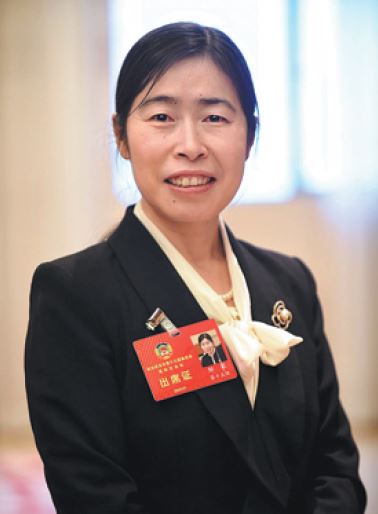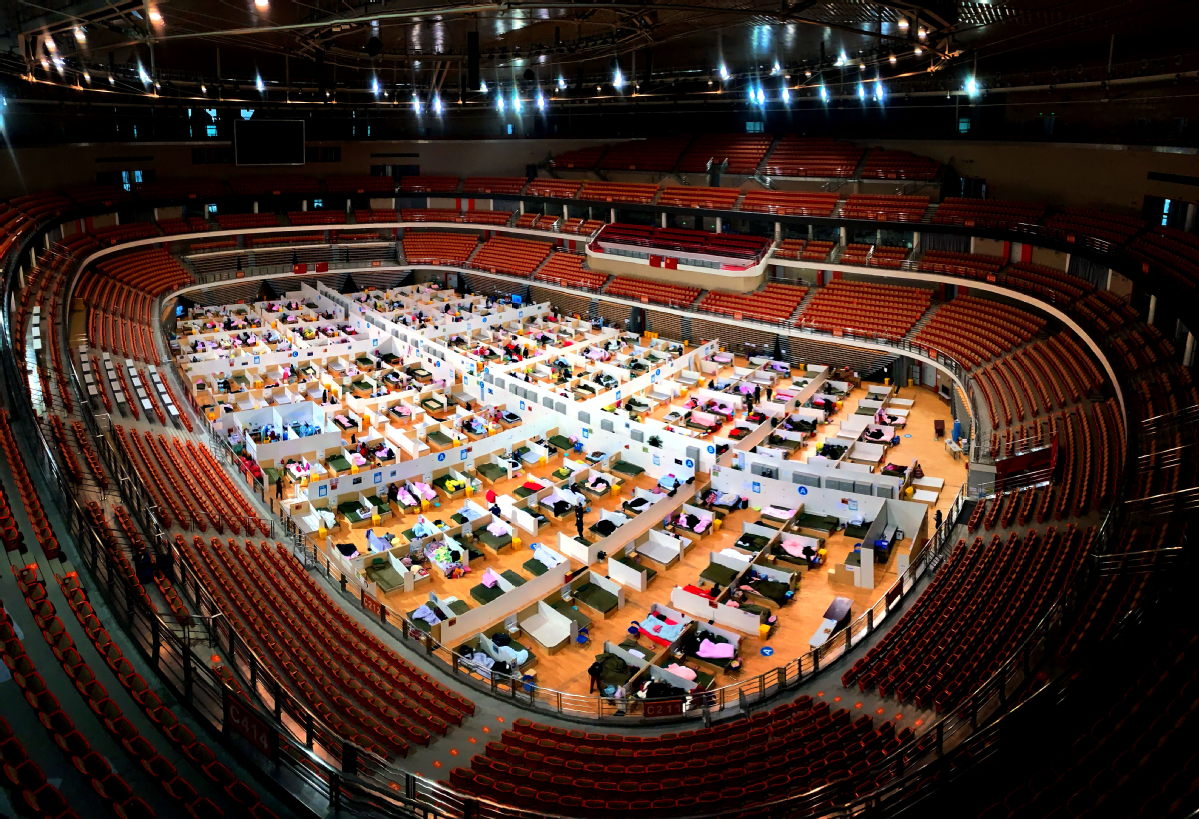The proposal that saved thousands of lives


When the novel coronavirus hit Wuhan in late January, Zou Wei, a member of the Hubei Provincial Committee of the Chinese People's Political Consultative Conference, submitted a proposal that is thought to have saved thousands of lives.
At the time, many people who suspected they had been infected were finding it difficult to access hospital treatment or quarantine facilities because of a shortage of medical services.
In response, Zou recommended that the venues and amenities used for the 7th CISM Military World Games, held in Wuhan from Oct 18 to 27, should be used to provide accommodations.
Zou, a professor of economics and management at Wuhan University, had been keeping a close eye on the development of the COVID-19 epidemic.
She noticed that the shortfall in medical and quarantine facilities meant a large number of suspected patients had to go into isolation at home, which posed a great risk to their families and neighbors.
She realized that the dozens of stadiums and gyms used for the games-most of them located far from the downtown, spacious and fully equipped with parking lots, good ventilation and boasting plentiful supplies of water and power-were ideal places to house those affected.
"By gathering people suspected of being infected in those facilities, rather than allowing them to scatter across different residential buildings and communities around the city, the risk and the pressure on hospitals and communities would be greatly reduced," she said.

Zou believed the move would make it more convenient for medical workers and community volunteers to provide help and services, such as nucleic acid tests, temperature checks and the distribution of meals and medicine.
"In this way, people could receive better treatment, care and support," she said.
Realizing that it was not just a medical issue, but also a question of administration and management concerning the distribution and use of social resources, Zou submitted the suggestion on Feb 1.
Early the next day, she received a call from a city government employee, who informed her that the suggestion had been accepted and was being put into practice.
Over the next few days, several venues were transformed into mobile cabin hospitals. They started accepting patients with light and mild symptoms on Feb 5.
In the month that followed, thousands of patients recovered and were discharged from the facilities. There were no fatalities.
Zou said that as a political adviser, she was delighted to have done something for the people and pleased that her suggestion had made a positive contribution to epidemic control.
With the outbreak now dying down in Wuhan, the province and the country as a whole, Zou is busy coming up with new suggestions to assist the resumption of work and industry in general.
More specifically, she is focused on the economic recovery of her home city and province.
"Weiji, the Chinese word for 'crisis', comprises two characters 'danger' and 'opportunity'. The epidemic has brought a crisis to Hubei and Wuhan, but it may also mean an opportunity for improved management and better development," she said.
"I have confidence in our city and our province."
- China's CR450: A new era of high-speed rail at 400 km/h
- TAN SUO SAN HAO to pioneer future of deep-sea exploration
- Xi's discourses on Chinese modernization published in Japanese
- Officials summoned over alleged garbage bin food served to students
- Caring hearts help to enhance quality special education
- Xi sends condolences to South Korean acting president over plane crash




































